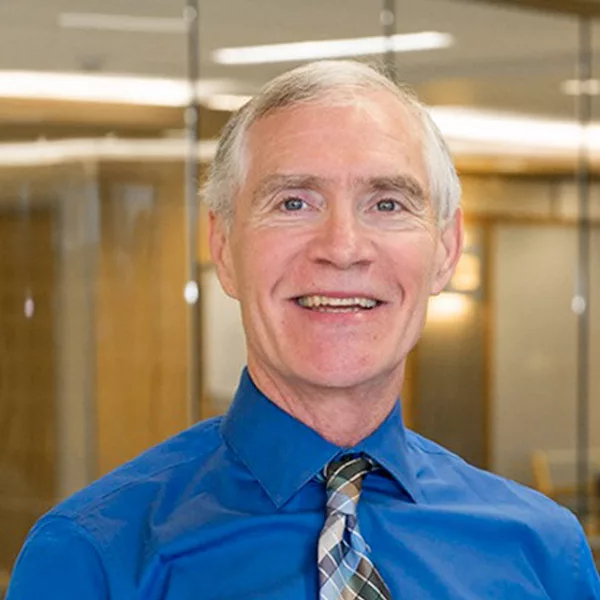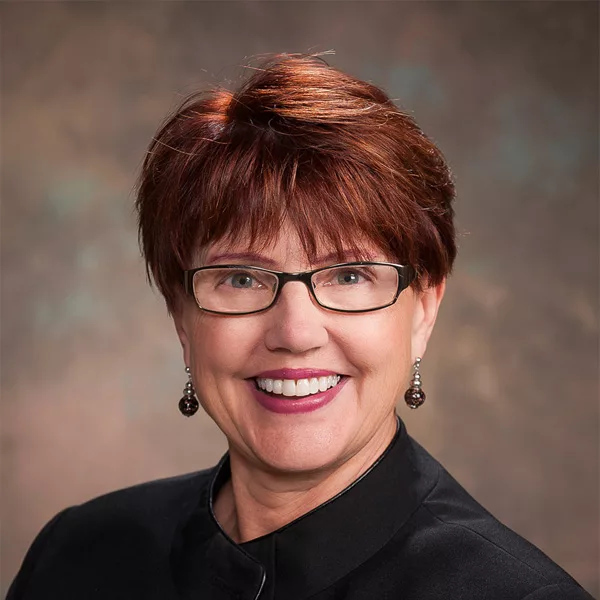Promoting Health and Health Equity in Urban Wisconsin
In a central Milwaukee, Wisconsin, neighborhood landmarked by Jake’s Deli and the Northside YMCA, transformations are taking place.
Distinguished University of Wisconsin School of Medicine and Public Health alumni hold top leadership roles at two of the health care systems within the school’s Statewide Campus.
Jeff Thompson, MD ’78, is the CEO emeritus of Gundersen Health System in La Crosse, Wisconsin, the school’s Western Academic Campus.
Sue Turney, MD ’79, is the first CEO of the Marshfield Clinic Health System, the home of the UW School of Medicine and Public Health’s Marshfield Academic Campus.
In addition to its primary home in Madison, the UW School of Medicine and Public Health also has the Milwaukee Academic Campus at Aurora Health Care. Aurora’s CEO, Nick Turkal, MD, has held many joint leadership positions with that organization and the UW School of Medicine and Public Health.
In the Statewide Campus, physicians volunteer their time and expertise by serving as community faculty and mentors to UW School of Medicine and Public Health students.

Planting seeds to benefit others is something Thompson cares deeply about.
“As a health care organization, it is our responsibility to not only take care of patients, but to help our patients and communities stay well. That includes caring for the environment,” says Thompson, Gundersen’s CEO from 2001 through 2015.
Nationally known for helping to build and lead a high-quality health system and as a climate-change expert and visionary leader in environmental stewardship, he reflects on the very successful sustainability efforts at Gundersen, which serves 19 counties in Wisconsin, Minnesota and Iowa.
“Our goals are to decrease emissions, decrease related diseases and save health care dollars. We hope to inspire others by showing what can be done by working together across the community,” he says.
The White House named Thompson a Champion of Change in climate and health in 2013, honoring him for doing extraordinary things to empower and inspire members of his community. In November 2015, he presented a talk, “Sustainability and the Health of our Communities,” at the United Nations Climate Change Conference in Paris.
“My talk made it clear that all things are connected. Between 5 million and 8 million people die each year from air quality issues. We must be a part of the solution,” he says.
After earning his undergraduate degree in his hometown at UW-Platteville, he entered the UW School of Medicine and Public Health, which he considers “a great place of great value.” He recalls the impact Elizabeth Silverman, MD, had on him.
“She pushed us to better ourselves. She demonstrated the rare combination of fusing the need to have strong basic knowledge, disciplined problem-solving approaches, and genuine care for each patient regardless of their struggles or backgrounds. Many clinicians master one or two, she did it all.”
In medical school, Thompson received a scholarship toward a medical experience at Monambaro Hospital in Madagascar.
“I was introduced to amazing people and geography, and a huge amount of illness. It cemented my feeling that we should value our health and not waste resources,” he says.
The previous year, he had met Sandy — now his wife of 37 years — when she was a nurse at St. Mary’s Hospital in Madison. They have three children, Rachel Thompson- Fleming, MD, a pediatric hospitalist at Gundersen; Nathan Thompson, MD, an interventional radiologist in Chicago; and Sam Thompson, a human resources specialist who is pursuing a master of business administration degree.
Thompson is proud of several high-value programs at Gundersen, including the organization’s role as the UW School of Medicine and Public Health Western Academic Campus; its focus on teaching medical residents; and its strong efforts to encourage advance care planning.
“Studies show that 95 percent of La Crosse County seniors in their last two years of life have advance care plans. It is the highest percentage in the United States,” he says.
In 2008, Thompson notes that Gundersen leaders analyzed what their organization was potentially doing to the population’s health and financial well-being by burning fossil fuels from outside the region.
“We established and subsequently met goals to power Gundersen by renewable materials, reduce its greenhouse gases by 90 percent, improve the health of our citizens, lower the cost of delivering care, and improve the local economy,” he notes, adding that the health system’s priorities inspired people worldwide to follow suit.
“If you are part of a value-driven organization, you must have the discipline to look it in the face and say you can do better. Just because you have people in your waiting room doesn’t mean you are delivering the best quality care,” he says, noting that change requires checks and balances to make sure systems work consistently and staff follow through on expectations. “When you do that, the whole community benefits.”

When Walt Disney said, “All our dreams can come true if we have the courage to pursue them,” he could have been describing Turney’s life from kindergarten through today at Marshfield Clinic Health System (MCHS).
In September 2014, Turney returned to her Wisconsin roots to begin her lead post for MCHS. Previously, she was president and CEO of the Medical Group Management Association in Englewood, Colorado, and before that, the CEO and executive vice president of the Wisconsin Medical Society. She has fulfilled appointments by the Wisconsin governor and U.S. Health and Human Services secretary, and has served on American Medical Association committees and on the eHealth Initiative Board.
In 2005, Turney was named a Fellow in the American College of Medical Practice Executives, and she’s been one of Modern Healthcare’s 50 Top Influential Physician Executives multiple times.
Turney is leading one of the largest, most comprehensive medical systems in the nation. With a tripartite mission of patient care, research and education, MCHS has Marshfield Clinic, with more than 50 primarily rural sites in northern, central and western Wisconsin; two hospitals — Lakeview Medical Center in Rice Lake and Flambeau Hospital, co-owned and operated with Ministry Health Care in Park Falls; Security Health Plan of Wisconsin, Inc., a not-for-profit health maintenance organization; and MCIS, an information technology company. The system also includes a graduate medical education program and a research foundation.
Turney completed an internal medicine residency at Marshfield Clinic, where she served for 22 years in clinical practice and administration. She earned her master of science degree in administrative medicine from UW-Madison in 1999.
Raised in the small northern Wisconsin town of Mellen, Turney shares a vivid memory of the time her kindergarten teacher asked what the students wanted to do when they grew up. Turney responded that she wanted to become a doctor, but her teacher said girls don’t become doctors and suggested options like nursing or teaching. Turney continued to dream of the day she would be a physician.
Over the years, she continued to hear “girls don’t become doctors,” including from her father when Turney was preparing to take high school science and math classes.
“He believed in me, but it was a different era for women and medicine,” she recalls.
At Mellen High School, she met Peter Turney, whom she later married. He earned his bachelor’s degree from UW-Madison, taught school and later operated a bakery and restaurant. The couple has two grown children. Their son, Peter Turney, JD, earned a bachelor’s degree from UW-Madison and a law degree from DePaul University; he is the assistant director of athletics compliance at Arizona State University. Their daughter, Alison Jones, MD, earned her undergraduate degree at Yale University and spent one summer at UW-Madison “so she could be a Badger.” Married with two children, she is completing a psychiatry residency in Chicago.
Turney recalls a twist of fate that happened while she was working in the emergency room in Marshfield.
“I was assigned to care for a patient, and when I pulled back the curtain, there was my former kindergarten teacher who had discouraged me from becoming a doctor!” she exclaims. “I told her that advice had acted like a reverse motivator — it helped me become a physician.”
She also reflects upon a 20-year friendship with her mentor and fellow UW School of Medicine and Public Health alum, George Magnin, MD ’46, whom she met in her third year of medical school.
Magnin joined Marshfield Clinic in 1952. He was an UW School of Medicine and Public Health preceptor from 1952 to 1966 and a clinical professor from 1962 to 1992; he also was the first director of medical education at Marshfield Clinic, where thousands of UW School of Medicine and Public Health students have had opportunities to learn since 1927.
“I was impressed by his incomparable standards for medical education, which led me to do my residency at Marshfield Clinic and join its faculty. He was an expert in the science and art of medicine, and he served patients before himself,” recalls Turney.
She proudly notes that in 2008, Marshfield Clinic became the inaugural site for the UW School of Medicine and Public Health’s Wisconsin Academy for Rural Medicine (WARM) Program. Its graduates are practicing throughout rural Wisconsin communities, including Marshfield.
Marshfield Clinic also recently built comfort and recovery suites that are licensed as skilled nursing facilities in Marshfield, Wausau and Eau Claire for patients receiving care in ambulatory surgery centers at those clinic locations.
As Turney reflects on her journey, she shares: “Don’t be afraid to change, allow yourself to embrace what you want to do in life, and accept the consequences.”
She says she is fulfilling her dream of caring for patients, but from a different perspective in this organization that is celebrating its 100th anniversary year, adding, “It is a continued privilege to take care of patients.”